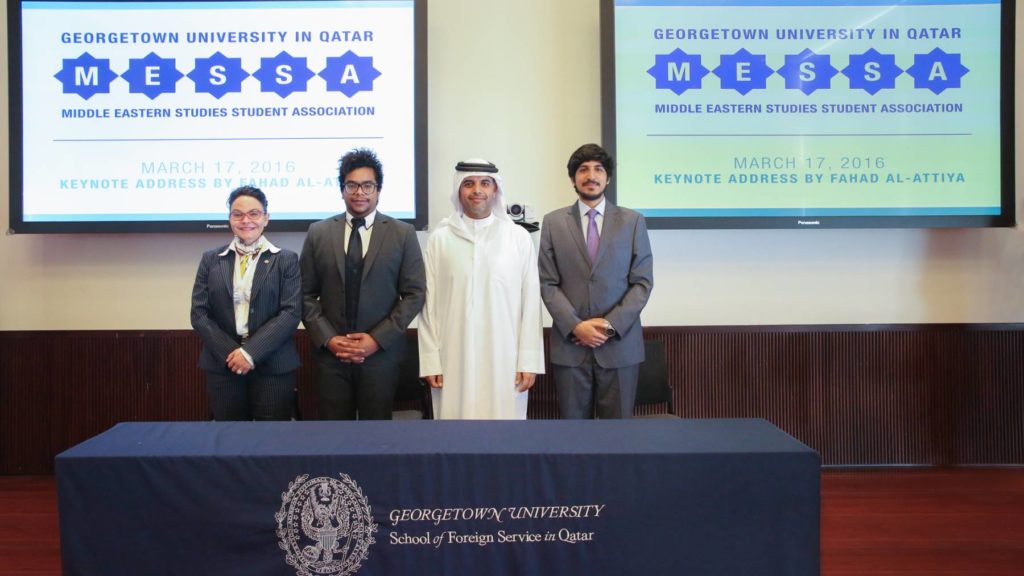Georgetown Students Host 5th Annual MESSA Conference for Young Global Scholars

College students from top schools in Qatar and around the world recently participated in Georgetown University in Qatar’s (GU-Q) fifth annual Middle Eastern Studies Student Association (MESSA) at the Education City campus. This year’s conference was titled “Emerging Middle East: The Challenges of Integration and Social Fragmentation”.
“Georgetown’s MESSA presents undergraduate students an authentic conference platform to present and publish their rigorous local and international academic research and papers to faculty and their peers in the research community. For our students and those participating from around the world, this conference opportunity is a frontier to flourish their intellectual abilities,” said faculty advisor Dr. Christine Schiwietz, who is also the assistant dean for academic affairs at Georgetown University-Qatar.
This year’s conference theme explored the opportunities and threats of a post Arab Spring Middle East, including rethinking national identity, reconciling modernization while protecting cultural values, the future of women’s rights, and more. Participating students spent the full day of the conference presenting their research submissions as well as engaging in debate and dialogue on the broad range of disciplines that contributed to the scholarship of an Emerging Middle East.
In his welcome introduction, Mohammad Taimur Ali Ahmad (SFS’17), vice-chair of the MESSA student board and a junior majoring in International Economics stated: “This conference represents a very important platform for students to engage with faculty and colleagues. Today we are facing a variety of issued in the Middle East; political, economic, social, and cultural-and all are shaping up to an unclear future.”
Mr. Fahad Al-Attiya, the former Executive Chairman of the Qatar National Food Security Program, delivered a thoughtful and engaging keynote address where he reflected on the lessons learned from Qatar’s rapid development.
“When I was tasked to handle the fundamental question of securing the future of this country, I had to understand where we were heading and our present position. And so I questioned everything in weighing the costs and benefits of our nation’s economic model for development. It is important to note that in Qatar, we export oil and gas, but need to import everything else. Our growth is great, yet growth requires capacity, and all of our capacity is borrowed. For sustainable growth, you need qualitative development, not quantitative.”
Mahir Al-Toby (SFS’17) chair of the MESSA student board and majoring in International History remarked, “Fahad Al-Attiya is an excellent ambassador and representative of Qatar and Qatar’s vision for the future. He is willing to face difficult questions without glossing over them. He reflects MESSA’s conference vision: being forward thinking and developing real solutions to real problems.”
This year’s student paper submissions will also be included in The Journal of Georgetown University-Qatar Middle Eastern Studies Student Association, published by HBKU press, the first academic political science journal that is produced by university students in the Middle East.